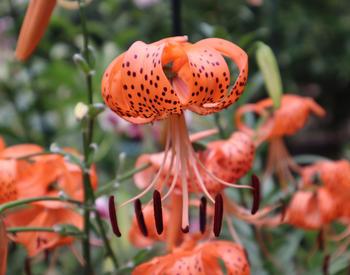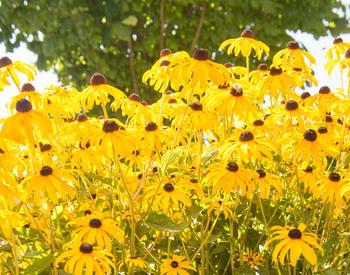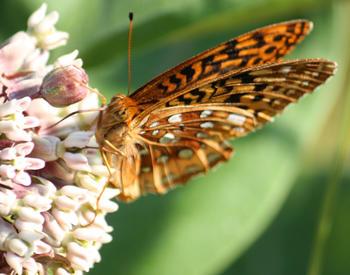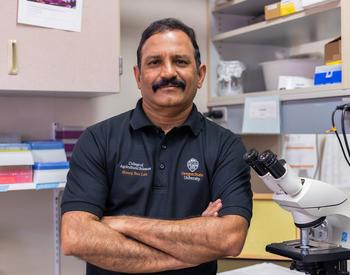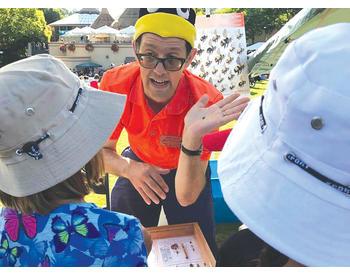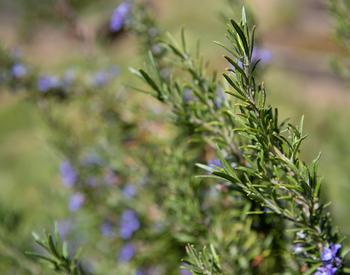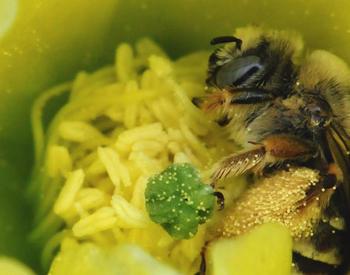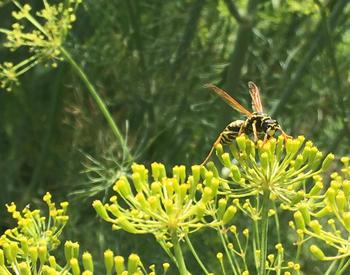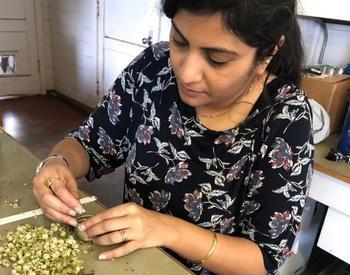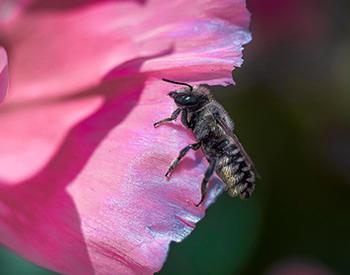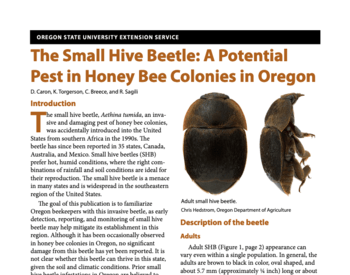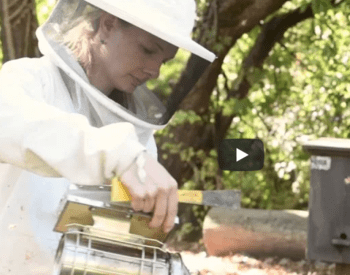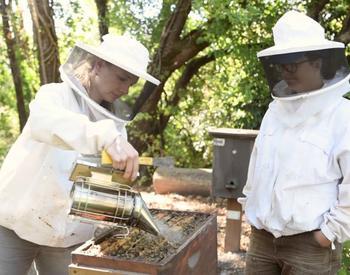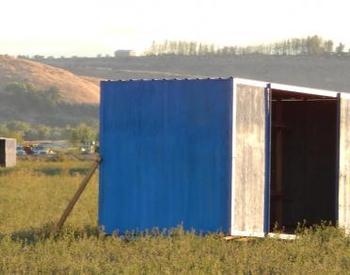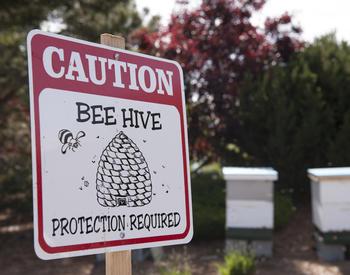Transcript
Andony Melathopoulos: [00:00:00] I have been holding onto this episode for months now, six months maybe. It was when I went to the Young Harris beekeeping Institute. It was just a highlight of my entire year. In fact, it was a really wonderful experience meeting the Georgia beekeepers, and I remember that. Feeling of walking into the room and seeing this magnificent license plate that the Georgia Beekeepers Association had brought to be brought to bear.
I'm releasing this episode now, and you'll hear about this maybe in an episode from more details in an episode. From here, we now have a new. Oregon license plate dedicated to bees. We're selling vouchers. We have to sell 3000 vouchers. You need to buy a voucher. Visit the show notes or go to Oregon bpl.org to find out about it.
But the inspiration, many points of inspiration, but a key inspiration came from talking with Gail Dean. Now Gail heads up legislative matters for the Georgia Beekeepers Association, and really was [00:01:00] the driving, one of was the driving force. There were many driving forces. Was a driving force in bringing the license plate to bear the light of day in Georgia.
It was a much more difficult process than we had here in Oregon. So I'm really delighted to finally release this episode so you can hear about the wonderful camaraderie, the excellent spirit of working together in Georgia, which is now finding its own feet here in Oregon. So Without further ado, here's Gail Dean this week on pollination.[00:02:00]
All right. Just a sound check here.
Gail Dean: B e 1 2 3. Woohoo.
Andony Melathopoulos: Okay. I think we are, we're rolling. I am here at the Young Harris Beekeeping Institute. The 30th anniversary Yes. Of, of young Harris. And I'm right across from me is Gail. We were just chatting as I love with this podcast by the coffee earns.
But what struck me right away is I saw a beautiful table with for people to learn about the honeybee plate here in the state of Georgia. Where did the honeybee plate start?
Gail Dean: I was new to beekeeping. Oh, you were? And that was. Eight years ago, and I was a member of the Georgia Beekeepers Association and the Metro Atlanta Beekeepers Association and some other little beekeepers association.
I went to my first board meeting and the president at the time, this was about six years ago, the president [00:03:00] at the time, said, we've been talking about doing a B license tag in the state of Georgia. And a bunch of folks said, you'll never get that done because it's so hard. And the legislature's all divided and everything.
And I raised my hand and said I'll try to get it. Oh my, wow. ,
Andony Melathopoulos: what was I thinking? Okay, so this is how it started. That's how it started. But I imagine, underneath it all, there's you. All sorts of, having a license plate has this great everybody gets to it raises the profile, the visibility of bees in a state, cuz it goes up and down the interstate, this picture of the bees, and there's the logo on there.
Save the honeybee. But I mentioned the other thing is that there's revenue for many states that apply for plates. There's revenue that can be put back into programming in the state.
Gail Dean: Yes. And one of the things we had to do was convince the State House and the state legislature and the governor.
In Georgia to approve the tag. And part of doing that was coming up with the wording for a bill to be passed in the state house. [00:04:00] Oh. And in that bill we put, one of the major things in that bill was education of the public and education of beekeepers. And that's where the revenue. would be spent.
We have other areas that don't be spent, but a big thing in changing the image of beekeeping in the state of Georgia's education, and that's what we
Andony Melathopoulos: wanted to do. That is fantastic. Okay. So I imagine from that point at the Bee Club meeting where you put your hand up and said, I'd be interested in taking this on to the point where I am.
I've landed in Georgia. I was out in the parking lot here and I saw all. Vehicles with license plate numbers. There was a lot of work involved between that point in this. Yes. What was the, so you went to the legislature, you had to convince legislators in the state of Georgia that this was a good thing so that they would support
Gail Dean: a bill.
The first thing you had to do was I'm elected to the Board of Education in Fulton County, which is a big. And I've been elected for 22 years, and part of what I do is go down and talk to the legislature about [00:05:00] education bills that are introduced every year. So I felt comfortable going down to the capitol and talking to legislators.
Andony Melathopoulos: Okay. One, you need somebody who can do that. Yes, because it's not everybody. You gotta be pretty bold when you go down at the house.
Gail Dean: It's the, a skillset set and I was free. Yeah. They probably could have hired a lobbyist maybe to go do all this stuff, but you really needed to have a passion and you needed to have an understanding of how a bill gets approved.
Okay. So that was thing one. But more important than that, every law is different in every state. So I had to go down and now I don't have to go down. Because you can do it on the internet. Re research what a revenue producing bill looks like in your state relative to to license tax. And because it's a, in Georgia, a revenue producing bill, which is the state is giving revenue to someone. Uhhuh, has to go through this process. It might be different. It's , everything is different in different states. But in Georgia, You had to understand what getting a bill looked [00:06:00] like in terms of the wording in addition to being able to talk to the legislators.
So a lot of it was that, and then convincing my own bee club that this is how we have to do it because it bee cover beekeepers, as are all a bunch of independent folks. Everybody wants to. Everyone wants to do it their way. So there was a little bit of that one that went on too.
Andony Melathopoulos: So tell me about the strategies of talking to legislators.
How were you able to were
Gail Dean: they all more of this educational person? I think you met Bobby Chase on Yeah, bobby was on my committee. Oh, wow. Great. Okay. So Bobby is beekeeper of the year. Georges a. Fantastic guy. He keeps bees in Lula, Georgia. It's a small town. And I he saw me and I said, will you be on the committee?
And he said, we have a member in our club in Lula. He's the president, he's a beekeeper and he's also a state legislator. I said, perfect sponsor. Oh, perfect sponsor. Yes. And he agreed to sponsor the bill in the house, which is how it has to happen. So that was a big part of getting him [00:07:00] on board.
So that, , there was someone to actually introduce the
Andony Melathopoulos: bill. Okay. And okay. The bill passes and now I guess you have this situation where you need to get people to, oh, let
Gail Dean: me tell you what we did. Okay. Before we go that yeah. Please do the bill passes. Yeah. That was huge. Yeah, it took two years, from two years discussion to research, to writing.
to, and we have every other year everybody gets reelected in the state of Georgia. Yeah. So it had to be in, in the first time because in the second time they don't do a, so you had to hit at the right year. Uhhuh. . But part of what we did is we gave every legislator in the state of Georgia, all 260 something of them.
A bottle of honey produced in the state of Georgia, and that was monumental. And in, in that, there was one of this Save the Honey bee license tag folders, which said where are the money would go, not this one, but one that looked like [00:08:00] that, what the tag looked like. By then we have already had artwork and everyth.
down all the stuff, the preparatory stuff within the club to be able
Andony Melathopoulos: to go to the, so they would have on their desk to kinda see the, on this all the details, the
Gail Dean: hat on their desk, a bottle of honey from the, from, we tried to match the honey from the area to the, and that was impossible to do. So we made sure everybody got a pound of honey from a Georgia beekeeper with a copy of the plate, with the wording of how the money would be used for education in the state of.
Andony Melathopoulos: Oh, great strategy, really well thought out. And I imagine for a busy legislator just having everything there plus a little bit of sweetness. Yes. Is a great, is a selling? Is a selling is a selling. Package, it's ready
Gail Dean: to go. Okay. They were excited. We had a lot of people wanted more honey .
Andony Melathopoulos: Good.
That's what we want to do. Okay. Bill has passed and now you've got a design tell about how did you, how'd you come up with a design? How we came up with design
Gail Dean: back up a bit. We decided that we wanted to, the only [00:09:00] way we thought we were gonna sell these tags is to get everybody in the state.
In the Georgia Beekeepers Association. Yeah. And so what we did is we sent out word to all, I think at the time we had 42 clubs, Uhhuh, , and we sent out the word through our communication. That we wanted artists to enter a contest to design the license tag, Uhhuh . And so we got lots of designs from all over the state and the group, I was on the committee to approve it, and we were blind.
We didn't know who brought the plates. Uhhuh , you know who designed them, who submitted them. We got it down to three, and then we went back to the we. We took their submissions, which had to be the size of a license. And we put 'em on cars. And that was part of how we decided which ones to choose, because they had to, you had to be able to see it.
If you're driving down the road, I
Andony Melathopoulos: imagine that's the thing by committee to make a license plate or whatever, all these little details that nobody's gonna see. But what you did is you asked [00:10:00] for a competition, you took the designs, you printed 'em up, and then you put 'em on a car and then you could say that, I can see, and
Gail Dean: it's attractive.
So then what we did is once we did. We could see what parts of those tanks needed improvements to be able to see it on the back of a. Because we had to submit it to the state and they had to approve it. And so we wanted the design to be approved at the first, the bureaucratic machine in Georgia is very big and difficult to maneuver.
Yeah. We wanted to get in and out as quickly as possible. Oh, okay. On the design part. So we went back to those three artists, not the one that's of us on the committee. Yeah. But the president of the association went back and said, this needs to be, these colors need to be more vibrant or this part of the art needs to not be a beehive.
It needs to be an artistic bee. We can't have it look like the Georgia Tech bee. It has to be a, almost like a cartoon bee. Yeah. That can be seen you. And we went [00:11:00] back and once we did, we came up with the tag that you see here that was
Andony Melathopoulos: approved. I love it. It's strikingly simple. It's got a great color pattern and it's real easy to understand what this
Gail Dean: is about. We wanted to show that Georgia has mountains and it has planes and, we thought it, it really looked dramatic. Okay. It's nothing like any license tags that are in the state and we have a lot of what we call revenue and producing tags, but none of them, ours is the best by far.
I, you
Andony Melathopoulos: guys have done a magnificent job. It is a beautiful plate. Thank. Okay, so then you've got these, this design, and you've got authorized to to start the process. . How, what's
Gail Dean: the process of okay, so in Georgia what happened is we had to we could do one of two things. We could wait and sell, like you said, vouchers to people.
You agree to buy it, you give it the money, we'll hold it. , et cetera, et cetera. Or we could get the state to agree [00:12:00] to we could pay for the money in advance for the first thousand plates and then they would go ahead and accept the money and, but they wouldn't produce them until we had actually sold a.
but we actually kept the money then cuz we had already paid for it. So Uhhuh . So the state gave us a form, we filled out the form and somebody wanted to buy it. They gave us the money and we gave the state the form. So they had to have a thousand of those forms. Yeah. But they didn't have, we had, didn't have to go through the transfer of money.
Okay. Does that make sense? Yes, it does. Okay. So we got we had to convince our club and our board to go ahead and put up this $25,000 in advance. That's the $25 manufacturing fee for each one of the thousand plates that had to be redone and with the promise that we would get it back on the first thousand plates that we sold going out on the limb there, but yes.
Yes. And then once that happened we would be even, and then from that on, we [00:13:00] wouldn't be paying $25 to manufacture. The purchaser would pay that directly, and then we would get our re. From the state, which is $22 per tag. And
Andony Melathopoulos: so how did that initial sale go? So
Gail Dean: we
Andony Melathopoulos: first, we took the clubs, oh wait.
How did, yeah, what was your strategy to get the sales? Like how did you, okay,
Gail Dean: so we went all over social media and through our local clubs. So we constantly, everywhere we went, we had the reproduction of. We gave out placards at every state meeting, at every local meeting, we delivered packages of the form to, come out, buy a plate, da.
And it took us maybe six months and we had the first thousand sold. Really? Yes. And then amazing. Once we had the first thousand sold, then the state took over the sale and the manufacturer and the whole thing through the license tag offices. But we had to do that. And then we had a. The state could not accept money or produce the tags for almost two years because they [00:14:00] put in a new software program Oh my, for the driver's licenses.
And so anything that required programming and on their part had to be put on hold until they redid what a hard break It was called the Drives program. And it was an 18 million program that the state put in for license tags and driver's license. So here we did all of that. We got everybody's enthusiasm up.
Everybody loved it, and then we couldn't produce the test. Oh, okay.
Andony Melathopoulos: Alright. But so the two years elapsed and now this program is up and running. Yes. Oh, the other thing I was gonna ask you about is I noticed I love the numbering on here. So it says b e, e and then it has a number, right? . And when we were talking back at the coffee you mentioned that there was an. For, tell me a
Gail Dean: little bit about that. Okay, so what we did is we decided that, all the people in Georgia and the Georgia Beekeepers Association, the state organization, who had been a president or past president, volunteer of the [00:15:00] year. So we came up with a hundred pe.
The state said you can have 100 B e tags, like B 0 0 1, for a hundred tags, and so we sent down a list to everybody and says, you can get this tag right. No extra charge or whatever. You just have to, yeah. Sign up to get the tag and they could. Pick the number they wanted. Yeah. So I picked B 0 0 7.
I'm like, oh,
Andony Melathopoulos: double. You licensed to kill? Yeah. Yeah, double.
Gail Dean: So we gave our artist Julie Mahu, we gave her B 100 Uhhuh and Oh great. So we went through and there were some 30, 40 tags that didn't get, this was early in the process . And so we said, okay, what we'll do is we'll have an auction at one of our state meetings.
We have two a year. And get a silent auction. For each one of the tags, numbers that were left, that would get B, and then an A three digit number afterwards, and we made a couple of thousand dollars for the state [00:16:00] organization. , everyone sold every one of the tags sold. . And so that was how we got run.
So we, wow. It was fantastic. So you'll see the rest of the tags now just have a mixture of letters and numbers, just like a state tag. , they would only give us a hundred of the ones that said B
Andony Melathopoulos: 1, 2, 3. Okay. You've, you were able to get your plate into production and now appears. When you go get a license plate how do you keep the, keep it going?
So
what
Gail Dean: happens is we don't do anything. They just send us money. , , . I know you love that. So what happens is we get for every plate sold, the state organization gets $22. Okay? And they charge $25 for the to the purchase.
Andony Melathopoulos: Oh, that is an amazing conversion, . Okay, so the and the people just, every year they contribute, they
Gail Dean: what happens in Georgia, how when you buy a license tag, the first time you buy it, you go down and, you select it.
Or now they have it through the new drives program, you can select specialty tags online. . So once you select that tag, then every year when they bill you for your tag , they just bill you for that extra [00:17:00] fee. And then they send us, The check for $22.
Andony Melathopoulos: So how's this gone? How's the
Gail Dean: program gone?
How is it? It's fantastic. So one of the big, most important things for us is, like I said, education in the bill, which I got the fun part to help write the bill. , we put in the bill that we could use the funds that were audited every year. We can use the funds for education of beekeepers, education of the public.
This for the state research universities, which of course uga, which is hosting this young Harris B Institute. So what we do is we have people write grants, they write grants to us, and then there's, we have a uga Georgia Beekeepers Committee. . and then they approve the grants. So we give grants to uga, we give grants to local B clubs.
We give grants to schools, boy Scout troop, you name it. And so we have the funds to be able to do it. But of course now that people understand that these funds are available we have [00:18:00] somebody that did a joint be house. So you can sell your kind commercially in Georgia. You have to go through a commercial.
Extracting House. . So we have one of those that was funded. Oh my goodness. So we've got all kinds of, so it's fantastic. So we're getting ready to now do another push to expose the tag. So we had 'em on bus, where you go and get a catch a bus. Uhhuh, . We did that. We have we had lots of Facebook and Instagram, and we give out all the, you.
So we're continuing to do that. You saw here, you walked in and there's a beautiful table with a Yeah. With a a honeybee tag license plate on it with the information to give out on how to get a tag. We also are trying to, and it's hard to get the individual tag offices now or who's selling the tags.
Yeah. And so we go to the tag offices and get them to maybe put a picture of the tag in their office so people will know it's severe. Oh, we have almost half of the tags sold or. Keepers.
Andony Melathopoulos: Isn't that something? Eh? People are really interested in bees. It's a [00:19:00] big thing out there.
, I was, . So I can understand how it appeals. And I guess one thing that you did mention that I thought was really interesting is that and I'm thinking about this for, our state, we're working on a plate in other states and other beekeeping. That part of the revenue goes
Gail Dean: to promotion.
Yes. That's, it's really important I think, I don't know how it works in your state, but in our state, what is in that bill that was passed by the legislature in the house, which by the way was unanimous in both chambers. Wonderful. Which in Georgia, getting all those people to agree anything is Miracle
And it was immediately signed by the governor. But. being able to spend those funds on promoting the tag was really important because, typically the state organization doesn't have big coffers. We have more coffers now, but we segregate the funds, the license tag funds are separate of the general fund.
Yeah. And in knowing that, all state organizations aren't flush with funds, we wanted to be able to use the funds that. in the [00:20:00] projections that we had, if it was successful Uhhuh , we wanted to be able to promote it within that fund. Uhhuh . Does that make sense? Yeah. And so we wrote that into the bill and that pretty much the bill I submitted wasn't changed.
And that was in it.
Andony Melathopoulos: Is there anything else that we've missed? I remember the other thing is that some of that some of those funds go back to the UGA
Gail Dean: in their program. They've applied for UGA applies just like any anyone has to apply. Apply for the grant. Okay. And if they're, if the committee that approves those applications, sometimes they approve all of it, sometimes less.
Sometimes they said, this is great, you're gonna need more. . So we've done that and if it's approved, then that, Grant is forthcoming.
Andony Melathopoulos: That's amazing. I am really impressed. I'm I'm taking all sorts of notes here and I'm, thank you so much for talking to me and by extension, lots of beekeepers in Oregon about the success
Gail Dean: you've had here in, in Georgia.
I just really hope you get your tag approved and you increase the awareness in the state by people driving down the road and seeing a tag.
Andony Melathopoulos: Oh, [00:21:00] before we end this episode, . I was, this afternoon, I was delighted that a little package came to me and in it , I had a jar of sour sourwood honey, honey uhhuh.
And I learned that it came from you. Yes. Tell me what is sourwood honey? And I, let me just attest. It is a
Gail Dean: delicious honey. Okay. I'm a Georgia beekeeper, but I keep my beehives in North Carolina, which is right on the other side of that. That. Okay. Okay. So Sourwood is a tree and it grows in the Southern Appalachian mountains.
Okay. And it what's it look like? It's about 40 feet tall Uhhuh and has elongated leaves. Yeah. And right about now, yeah. If you go outside and you look at a sour tree, you'll see what looks, we call them fingers coming out of the end of the limbs. Uhhuh, . They look like little fingers dangling. Yeah. It on about July 4th at my elevation at 3000 feet or a little bit later.
Those [00:22:00] fingers keep coming out and it looks like lily of the valley flowers hanging off the end really? And the, and they're white. And you can sit in the lake and look up the mountain. And all are these white, no trees blooming with these little dang. . Thanks. It's very touchy though. It's depending on weather and so much depends on it.
For the last couple of years, we've not had a very good flow. Last year we had a freeze at April 14th, so everything, the elevation range is about 1500 to 4,000 feet. For Sourwood? . Okay. At 3000 feet. The freeze didn't affect me. I had sourwood honey, but everybody below me didn't. So because of that, April 14th.
So those little fingers that start to pop out got damaged. And so there was no, if there's too much rain, if there's not an, if there's not enough rain, it's a very particular thing. So it's not, it annually consistent flow, but when you have the flow, it's a major flow. There's more sourwood than there is waffle.
So the wildflower blooms [00:23:00] and it stops blooming around. June uhhuh, you take all those supers off your hive, you spin it out, you. Back and they dry out and clean up those frames for you. And then about July 4th, you get the sourwood flow and there's really nothing else blooming. So you can have a true varietal
Andony Melathopoulos: honey on a good flow.
What's the kind of harvest that you
Gail Dean: can take? Let's say I have, and I do small hives. I do eight frame mediums for my hives. Okay. And I do, so I'll get a hundred pounds of. off of a sour flow where I get maybe 50 pounds off. So I typically, for my, for me, if I have, depending on how many hives are actually doing it tonight, cause everything's, swarms, whole thing, I'll make about 600 pounds of sourwood in a good year.
And I've got, right now I've got 11 hives. But typically about, you know how it works, about eight or nine of them might be, not swarmed or Who knows, if you weren't splits and that are actually. So it's a fabulous honey. I've won blue ribbons all over the state.
I'm a Welsh honey judge, which is a long time in getting [00:24:00] there. So I've judged at App Munia and places like that, but before I judged, how I got into judging was entering honey shows and winning blue ribbons for my both sour women and
Andony Melathopoulos: Lawler. I'm gonna have to yeah we have Michael Young here.
I'm
Gail Dean: gonna. So Michael is who approved me to be a honey judge. I want to learn about this, if you have a chance to talk to Michael. Yeah. He's he's or Brett's English, or if you get a chance, Brett's runs it in the United States.
Andony Melathopoulos: Thank you so much and I will, I, if you, the one thing I will say I was really delighted to hear cuz I have one jar, it's not gonna last very long, that I can mail order this.
So yes, please
Gail Dean: do. I sent it. My, my sister is in Washington State, so every year I have to, you know what she did? One year she took my honey and re remodelled it and gave it to her friend. So I thought really, so she bottled it in the little four ounce thing. So she bought a whole bunch of my honey and but she did give me credit for the honey.
But I, but I, every year I sell my sister honey out in Oregon. If
Andony Melathopoulos: Joe Maresh is listening, I did that with Joe's Fireweed honey. So I
Gail Dean: got it. Joe's a Fireweed, honey. What are a wonderful, that's a, that's [00:25:00] another, everyone says plant their second favorite, honey and sour with us by
Andony Melathopoulos: the . Thanks for taking the time.
I really appreciate it and I'm really amazed with all the great things that you guys are doing here in
Gail Dean: Georgia. I hope you come back. I loved your talk today, by the way. I'm coming back. Thank you for coming, . Okay, thank you.
Oregon is going to be getting a new bee plate. We hear about our inspiration from beekeepers in Georgia.
Gail Dean is the co-chair of the Georgia Beekeepers Association Legislative Committee. She is the past president of the mighty Metro Atlanta Beekeepers Association and owner of Mountain Lake Honey (which makes the most delicious sourwood honey).
Links Mentioned:
